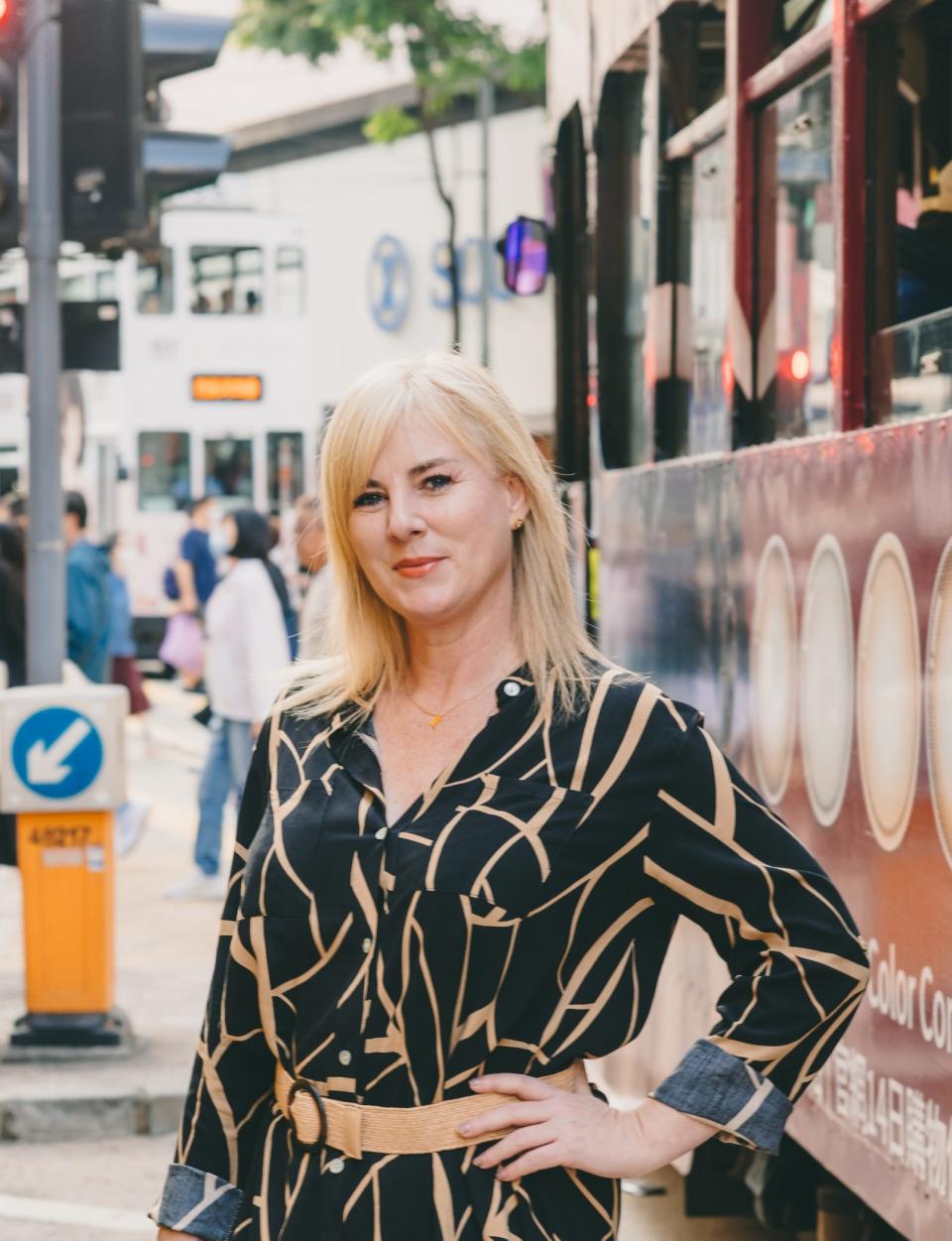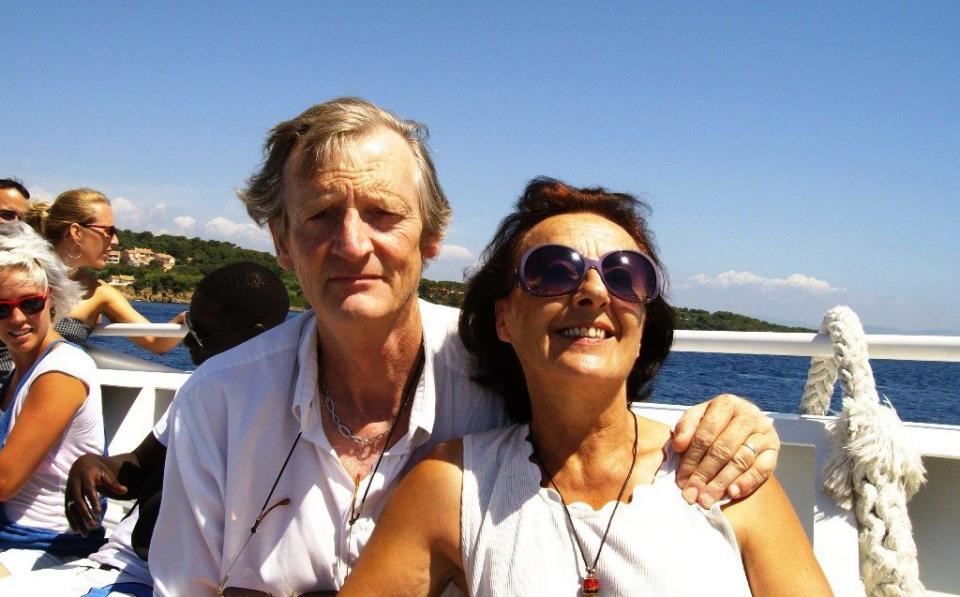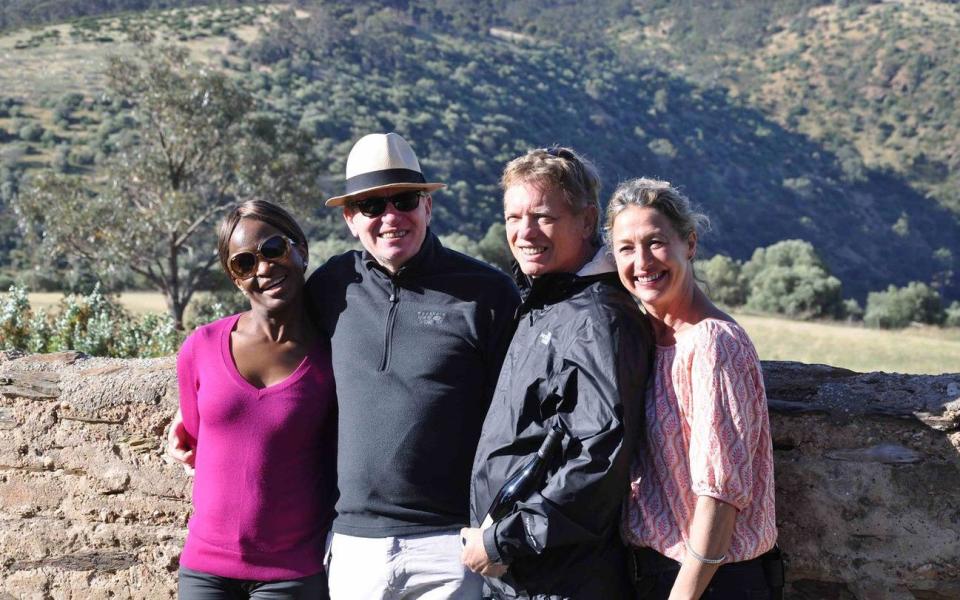Private yachts, occasional wife-swapping and over-the-counter Ozempic: the secret lives of expats

As a new Amazon Prime series sheds light on the frequently glamorous, often claustrophobic and sometimes salacious expat lifestyle, five émigrés recount their own adventures in Hong Kong, Dubai, Australia, France and southern Africa.
Hong Kong: ‘Life for many revolves around private yachts and supercars – plus occasional wife-swapping’
Harbour view apartments. Boozy brunches. Weekend boat trips. Parties at The Peninsula. Private schools and live-in helpers. This is the life of Hong Kong’s affluent émigrés, according to excerpts of Lulu Wang’s new series Expats, starring Nicole Kidman – the mere mention of which is currently sending Hong Kong’s social media channels into a frenzy. That fury is not only due to concerns the series will gloss over the harrowing political crackdown of recent years, but because we’re all still livid that Kidman was given a quarantine exception for filming in August 2021 – a time when Hong Kong citizens were subject to prohibitively expensive three-week long hotel quarantines as part of the city’s draconian Covid restrictions.

Setting our chagrin aside, just who are the expats Wang has set out to portray? In British colonial times they were called FILTH – Failed in London, Try Hong Kong – but that’s always been a bit of a cliché. Hong Kong’s expat community dates back to the 1800s and includes people of all nationalities – a Parsee cook established the Star Ferry; Mizahi Jews from Iraq built The Peninsula – and come from all walks of life. That includes my father, a professional football player for Glasgow Rangers who swept our family into Kai Tak Airport in 1974. Later, I went to school with “expat brats” from Thailand, New Zealand, France, Canada, Japan, India, Australia and Malaysia – this is one aspect of life which Wang seems to get right, with a multi-racial cast that includes Americans of Korean, Japanese and Indian descent.
Filipinas also make an appearance in the role of domestic helpers, who along with their Indonesian counterparts make up Hong Kong’s largest expatriate community, even if the government classes them as migrant workers and affords them with fewer legal rights. More than 300,000 of these women (and sometimes men) are integral to the lives of most Hong Kong expats, as well as Hong Kong’s middle and upper classes, providing childcare, cleaning, laundry, dog-walking and grocery shopping, six days a week, for a minimum salary of £480 a month. “I haven’t picked up an iron in the 20 years I’ve been here,” I recently overheard an English “trailing wife” tell her friends at a party.
Hardly the crime of the century, but that’s not to say there aren’t badly behaved expats. There’s a tedious group of transplants whose Instagram feeds offer an endless stream of champagne quaffing and twerking on tables and I’ve heard “gweilos” (an unflattering Cantonese term for white foreigners) speak to Hong Kong’s waiters the way they would never talk to a Glaswegian equivalent, lest they receive a slap in the face. Expats have also been behind some of Hong Kong’s most gruesome crimes, including the 2003 case of an American woman who poisoned her Merrill Lynch banker husband with a laced milkshake before clubbing him to death with an ornament in their luxury home in Parkview, where two-bedroom apartments start at £8,000 a month.
But, while there is an expat solar system that revolves around lavish apartments, Michelin-star restaurants, private yachts and supercars – plus occasional tales of wife-swapping – it’s just one part of Hong Kong’s cosmopolitan universe. And it’s a more rounded view of the city that we’re all hoping to see portrayed when we crack out the popcorn and tune into Expats.
By Lee Cobaj
Dubai: ‘You can gain considerable wealth simply by being blonde and female’
Like Hong Kong, Dubai is a bit on the cosy side. Moving here is a fabulous remedy for loneliness, whether you like it or not. It takes more effort to avoid fellow expats – particularly those of the same nationality and profession – than to make friends with them. Six degrees of separation feels more like two. In this little Middle Eastern hub, most of us know at least two members of the cast of Netflix’s reality television show Dubai Bling.
While the Dubai Bling narrative espouses the get-rich-quick expat lifestyle the emirate has become famous for, further shows have fortified it, from The Real Housewives of Dubai (in fact, impressively industrious women who can sell their social media influence for thousands of dirhams) to the young estate agents finding their 15 minutes of fame as well as fat commissions by selling mega villas on palm-shaped islands in Dubai Hustle.
But is this the actual reality of expat life in Tripadvisor’s most popular holiday destination? Yes and no.
Occasionally, the disillusioned expat departs, no better off than when they arrived. I also have friends who have walk-in wardrobes assigned entirely for the storage of Chanel handbags. Most people’s fortunes fall somewhere in between, based on a person’s skill set and how they scored in life’s passport lottery.
Britons tend to do well; remuneration aligns with UK salaries, but the tax break represents a huge benefit. Relocating from Blighty to Dubai to work in a similar role is akin to getting a 20 to 40 per cent pay rise. Affluence is celebrated. My fellow expats have taught me how to spend my money without guilt or fear of “rainy days”, which seem implausible in this opportunity-rich, sun-drenched metropolis.
I’ve watched media colleagues scale the career pipe and gain considerable wealth simply by being blonde, female and not afraid to drive fast cars – or even just by exposing and “normalising” their cellulite on Instagram, a contribution to the era’s body positivity movement.
High climbers are a talking point. In covert Facebook and WhatsApp groups their paths to fame are tracked and dissected with keen interest. Inspiration is appreciated and credit is given where it’s due – but the duplicitous are derided. Those preaching self-love and body acceptance while simultaneously loading up on Botox and fillers don’t fare well.
Who is and isn’t taking skinny pen injections is the current hot topic. Wonder drugs intended for diabetics, such as Mounjaro and Ozempic, are available over the counter in Dubai for around £300 a month. Suddenly, both men and women previously struggling with weight issues are in great shape, but not everyone is admitting to having jabs.
Some insist they have cut the carbs, hit the gym and done the work, but their protestations are often met with sceptical raised eyebrows. In this fast-paced, opportunistic environment, taking shortcuts is totally acceptable – but withholding the secrets of your success is most certainly not.
By Sarah Hedley Hymers
Africa – and New York City: ‘Endlessly explaining yourself is a defining feature of the expat’
By accident of circumstances, I have found myself to be a triple expat. Taken as a babe-in-arms from Britain to the southern African colonies (Rhodesia and South Africa), I grew up in the heart of Africa listening to the BBC’s World Service; watching Z Cars, The Army Game and The Saint on television; supporting Liverpool Football Club and touring English cricket teams; and proudly standing to attention when God Save The Queen was broadcast before every cinema performance. This devotion to the motherland stretched to buying Beatle boots, tab-collar shirts and flared trousers whenever they were shipped out to the colony.
This was long after the raucous heyday of the expat in Africa. In 1930s and 1940s Kenya, the words “Happy Valley” were a barely coded reference to upper class Britons drinking and fornicating. The extent of the decadence was revealed to the wider world in the White Mischief drama of the 1940s when Sir Henry “Jock” Delves Broughton allegedly shot and killed Josslyn Hay, 22nd Earl of Erroll, a serial womaniser, for having an affair with his wife Diana. Further south in the Rhodesias and South Africa, a more raw-boned version of the British expat tribe tended to farm, go hunting and drink beer and whiskey rather than champagne and cognac.

When I returned to the UK as an adult I found myself burdened with a southern African accent and a suntan and was thus regarded by my former English brethren as a white African. I naturally fell into the African expat mindset, reading the foreign pages in the national press first, hunting down Saffa expat shops that sold biltong, Black Cat peanut butter and Jungle Oats porridge, and seeking out old university friends, to whom I was so culturally attuned that I didn’t have to endlessly explain myself. That latter trait may well be one of the defining foundation blocks of the expat.
My final tour of duty as an expat was in New York in the 1990s as one of the British publishing pack. We sat around dinner tables in Greenwich Village and the Upper West Side deriding the headline and caption writers on The New York Times (leaden use of the English language, tortuous metaphors), moaning about the cultural insularity of our American colleagues, even in New York, and shopping downtown at Myers of Keswick for HP sauce, Marmite and Frank Cooper’s Original Marmalade. (Keith Richards was a regular customer.)
We would also assemble during the winter rugby season at an Upper East Side Irish bar named Eamon Doran’s, where we’d watch video tapes of the previous day’s Five Nations matches and consume pint after pint of Guinness. This was a time before the global reach of satellite broadcasting and the precious tapes were brought in by hand by Aer Lingus pilots. My regular companion on those expat Sundays was the Irish actor Richard Harris. A celebrity expat.
In fact, celebrity expats tended to be the flag-bearers of the glamour, the decadence and the subterfuge of Britain abroad through the 20th century. So, Graham Greene and William Somerset Maugham represented the literary insouciance of expat life in the south of France; Quentin Crisp was our Englishman in New York; Samuel Beckett and Jane Birkin were our bohemian representatives in Paris: and Ian Fleming and Noel Coward our men in Jamaica. They all represented the spirit of the British abroad, the expat either as adventurer or as black sheep, cast out by friends or family to distant corners of the earth where they would cause little embarrassment.
The blurb for the new Kidman series declares that it will follow “the vibrant lives of a close-knit expatriate community: where affluence is celebrated, friendships are intense but knowingly temporary, and personal lives, deaths and marriages are played out publicly – then retold with glee.” We shall see. It will take a lot to live up to the rackety lives of the expats of old.
By Graham Boynton
France: ‘I came across tales of adultery, of alcoholism and accusations of bestiality’
I’ve lived abroad, in France, for 35 years and have occasionally bounced around the fringes of expat circles. I mainly came away with a hangover.
As so many are retired, the festivities tend to start early. “What will you be having?” asked one English host with a property on the Med. It was about 10am on, I think, a Tuesday. I had barely breakfasted. In one hand he held a bottle of wine, in the other gin. Over a couple of days, it became clear that this was not considered eccentric in his (British) social circle. As a result, offshore yachting jaunts gained much in unpredictability.
Another British bunch I encountered in south-west France had colonised most of a small village, bringing with them epic thirsts both for drink and for the sort of conflict which simmers in any community but which may erupt when that community is forced in upon itself by surrounding foreignness. And by folk who speak French. And by booze.

Among much else, I came across tales of adultery, of alcoholism and of killer boundary disputes, claims of violence and accusations of bestiality. That was a surprise. Individually, the expats all seemed fine. Between themselves some verged on the toxic, reproducing all the tensions of home but in higher definition because they were away.
These are doubtless extremes. Most “expats” are simply “pats” who happen to live overseas. They customarily claim not to want to mix with other Britons, but that’s mainly untrue. This is because they need to speak to someone and few have mastered enough French. And they need to do so with people for whom The Archers, Dixon Of Dock Green, QPR, John Ogdon and the 1962 Humber Super Snipe all ring bells. Or else what are they going to talk about?
There’s absolutely nothing wrong with that. Communities worldwide are made up of different elements. The British in, say, the Dordogne are like the London Welsh or London Irish in London – a well-defined constituent group but also part of the greater whole. I’d say this makes the Dordogne a more interesting place (as the presence of foreigners in London adds to the capital’s lustre). More welcoming, too: the native French peasantry doesn’t invariably smile at visitors.
As it happens, I don’t experience much expat society. I have my hands full with a French wife, French kids, French in-laws, French neighbours – and, most recently, French thieves who this very week drained €1,000 (£850) from our French bank account. But I like bumping into other British exiles, partly because they tend to be open, interested and enterprising – otherwise, they’d have stayed in Swindon – partly because none have ever stolen from me, and partly because there isn’t a Frenchman alive who can join me in conversations about Preston North End, Barclay James Harvest or the relative merits of Eccles and Chorley cakes.
By Anthony Peregrine
Australia: ‘My Outback adventures were a violent, alcohol-soaked romp’
For much of its existence, Australia has been deeply unfashionable – at least to British people of a certain disposition. The English middle class, in particular, usually found New Zealand, South Africa and even Canada far more congenial or, dare we say, more civilised.
English expats looking for Shropshire on the Pacific were repelled by Australia’s vast, dry terrain and deadly wildlife – and shocked by the open hostility of locals.
In my 20s I worked in Western Australia’s Wheatbelt, where “pommy bashing” was a well-honed sport, almost as popular as boozing and hunting kangaroos. “You poms think you’re the only ones who can piss uphill,” an old bloke in the pub told me.

My adventures in the Australian Outback were not dissimilar to the classic Australian film Wake In Fright – a violent, alcohol-soaked romp, starring Donald Pleasence and Jack Thompson, set in the fictional mining town of Bundanyabba.
“What’s the matter with him?” says Dick (Thompson), the town larrikin, pointing to a young man in the pub. “He’d rather talk to a woman than drink?” His companion mutters: “Schoolteacher.”
Back in the 1980s Australia’s oldest city, Sydney, seemed to offer a refuge for a pink-cheeked pom fresh off the bus after a 2,500-mile trek from Perth. I enquired about a room at a motel. “How many hours do you need it for?” asked the receptionist.
But Sydney was a revelation – for myself and for the cohort of English expats who quickly coalesced in a series of shared houses, riotous parties and weekends in the Blue Mountains. I loved the texture of Sydney, with its naked materialism and unbreakable optimism, and my love affair has endured for three decades. I still get a thrill driving across the Sydney Harbour Bridge or hiking to South Head to watch the swell roll in from the Pacific.
The internet, cheaper air travel and global brand marketing has dramatically altered the experience of being a British expat in Australia and diluted the peculiarities of life Down Under. These days nobody needs to get on a plane for that much-missed pint of bitter, pork pie or Eccles cake and you can load all your favourite UK news feeds onto your iPhone, tuning into LBC, Radio 4 or Radio Cornwall on the way to work.
Australia’s self-confidence has exploded while Britain’s international standing has diminished. Despite the Ashes, the Royal family and the popularity of UK quiz shows (okay, and Doc Martin), I feel the two countries are drifting apart.
The role of the English expat in Australia is also changing. The new generation of arrivals seems to shed their Englishness in the arrivals hall at Sydney Airport. By the time they hit Bondi Beach they are fully naturalised, in flip-flops, zinc cream and board shorts.
Old campaigners, like myself, are still living the expat dream, relishing the space, freedom and beauty of Sydney while preserving our cultural identity, protecting the English language and generally flying the flag for British eccentricity.
By Mark Chipperfield

